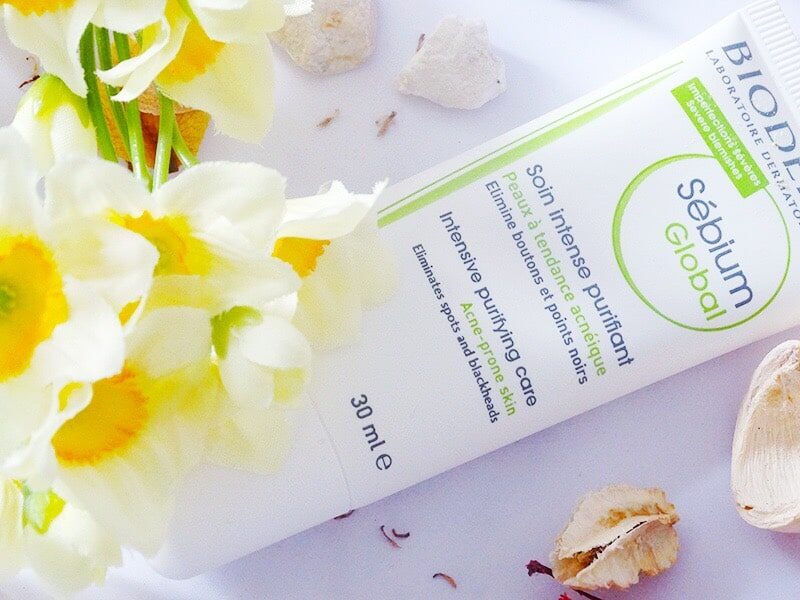
Have you ever heard of Citric Acid?
It’s a relative of Glycolic Acid. It does pretty much the same thing, yet no one uses it. Why is that?!
Let’s find out:
What Is Citric Acid?
Citric acid is a member of the exfoliating Alpha Hydroxy Acids family (the same family Glycolic Acid belongs to, too).
Citric acid comes from citrus fruits, like lemons, oranges, and tangerines. But you can also make it from fermented sugar solutions.
But what does it look like? At room temperature, it’s a white, crystalline powder.
Not sure what you can use Citric Acid with? Click on the image below to subscribe to my newsletter and receive the “How To Combine Actives Like A Pro” cheatsheet.
How Does Citric Acid Benefit Skin?
Like all Alpha Hydroxy Acids (AHAs), Citric acid is an exfoliant. It dissolves the glue that holds skin cells together, so they can slough off and reveal the smoother and brighter skin underneath.
Here’s the deal: the cells on the surface of your skin are old. They’ve been battered by the elements, attacked by pollutants, and exposed too long to the sun.
The result? They’re now so rough and dull, they make you look tired and a little older. But remove that superficial layer and voila’. The skin underneath is softer to the touch, more even in tone, and has a dewy glow.
While they’re at it, AHAs also hydrate skin through a humectant mechanism. That’s a fancy way of saying they attract water from the environment into your skin, helping to keep it hydrated and plumper for longer.
Studies show that using 20% Citric Acid for three months helps to make skin thicker, reduce sun damage, and increase skin hydration. Not bad, is it?
Related: AHAs VS BHA: Which One Is Right For You?
Citric Acid VS Glycolic Acid: Which One Is Better?
Glycolic acid all the way. There’s no contest here.
For starters, glycolic acid works well even in smaller concentrations (5% or so). But all the studies on citric acid used 20% or higher.
Those concentrations are way too high for use at home. That’s why citric acid in OTC skincare products is usually a pH adjuster (more on that below) than an exfoliant.
But even when you compare 20% Glycolic Acid vs 20% Citric Acid, the latter comes out as the loser. A 1996 study shows that Citric Acid appears “to be less effective, but may be useful additions to lactic or glycolic acid mixes”.
Related: Glycolic Acid VS Lactic Acid: Which One Is Right For You?

What Else Does Citric Acid Do In Skincare?
Citric acid may be an exfoliant, but it’s rarely used that way. In the smaller concentrations used in skincare, it has two other jobs:
- pH-Adjuster: It adjusts the pH of products, so they’re not too alkaline (that would literally burn your skin off!)
- Fragrance: It gives products a lemon-like scent.
Related: Is Fragrance In Skincare As Bad As Paula Begoun Says?
What Are The Best Skincare Products With Citric Acid?
- Bioderma Sebium Global Intensive Purifying Care (£15.00): Available at Escentual and Feel Unique
- Erno Laszlo AHA Resurfacing Sleep Serum ($100.00): Available at Beauty Bay, Cult Beauty, Dermstore, Feel Unique, Nordstrom, and Revolve
- Farmacy Honeymoon Glow AHA Resurfacing Night Serum ($58.00): Available at Cult Beauty and Sephora
Is Citric Acid Bad For Your Skin?
Exfoliation is one of the fastest ways to get glowing, younger-looking skin. But it’s not without risk. Here’s what you can expect:
- Contact dermatitis: If you’re allergic to it, it’ll cause a bad rash.
- Irritation: Like all exfoliants, citric acid acid can irritate skin, dry it out, and make it red and flaky when you use it too much or too often.
- Photosensitivity: Whenever you remove dead skin cells, you make your skin a bit more prone to sun damage. But you can easily avoid this by wearing sunscreen.
Related: 5 Skincare Treatments That Can Ruin Your Skin (If You Overdo Them)
The Bottom Line
It may be a member of the AHAs family, but Citric Acid doesn’t exfoliate skin all that well. Instead, it’s a great pH-adjuster. That’s its main use in skincare.
What’s your take on citric acid in skincare? Let me know in the comments below.

i always think this ingredient as a food addictive. 🙂
i think i need to avoid it as it’s photosensitive. i can’t afford to have more spots!
jojoba, if you use a sunscreen with it, you should be fine. And yes, it is also used in as a flavouring and preservatives in food too.
What is the effect, if citric acid is added in wet tissue lotion?
Lupcoc, in that case it can be used for several reasons, like to make the product last longer or to add a certain scent to it. It may also be used for its toning properties.
Thanx a lot
Lupoc, you’re welcome.
can i use citric acid as a skin lightening agent? and what the percentage to use in a face cream formula
Hafez, I guess you could, but ingredients like hydroquinone work better. Also, you’d need to use a product with a high concentration of citric acid, which could be irritating, especially if you have sensitive skin.
is it true that citric acid can be used to elliminate the smell of pure fish oil(oil for cosmetic serum)? in this case, what is the form of the citruc acid since water cant combine well with oil?
thx
zztins, yes, citric acid can be used as a fragrant ingredients to mask the smell of other ingredients used in the products. Usually cosmetics contain ingredients called emulsifier to help the water and oil parts of a product to mix. Hope this helps.
In addition, Citric Acid, may increase photosensitivity, so products containing this ingredient should be used in conjunction with a sunscreen. – I’m confused with this statement, citric acid may increase photosensitivity, meaning if I use it in a sunscreen lotion, it may be more harmful to the user, then why it should be used in conjunction with sunscreen? Please enlighten me with this one.
Thank you.
Roes, as a rule, it is best not to use citric acid on the face because it can cause photosensitivity and irritations. Sunscreen can help reduce, or at least, manage the former, so if you’re gonna use citric acid it makes sense to apply it. Also, when used in a sunscreen, the sunscreen agents may help reduce the potential side effects of citric acid. But the less used, the better.
can i use citric acid in my moisturizer? i make it at home with vitamin A & E, n different oils n vitamin e cream n also add sunscreen in it. so is it safe to add citric acid in it?? and how much quantity ?
Aleena, it really depends on what you want to use it for. I recommend you check out a DIY skincare forum as they will be better able to help you.
Thanks for the info, I´ve been using a La Roche Posay Effaclar cleanser and It contains citric acid but I think daily using It caused photosensitivity, I might start using it only once a week.
Marina, sorry to hear you’re having problems with it.